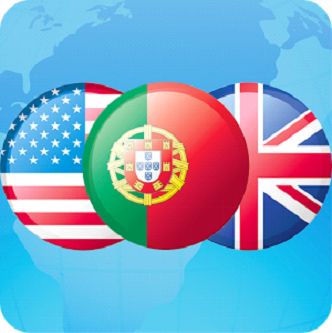Conserve Time with Quick and Accurate English To Portuguese Translation
Conserve Time with Quick and Accurate English To Portuguese Translation
Blog Article
Top Tips for Perfect English to Portuguese Translation Provider
Attaining phenomenal English to Portuguese translation calls for more than simple word-for-word conversion; it demands an understanding of social subtleties and linguistic complexities. Choosing qualified translators that are both culturally conscious and fluent is extremely important - English To Portuguese Translation. What various other essential variables should be taken into consideration to raise translation quality better?
Understand Cultural Nuances
When equating from English to Portuguese, understanding the cultural subtleties is vital for producing a resonant and accurate message. The Portuguese-speaking world is varied, encompassing numerous regions, each with its distinct personalizeds, idioms, and social standards. A translator should be in harmony with these subtleties to guarantee that the translation not only communicates the intended message however also reverberates with the target audience.
For circumstances, idiomatic expressions in English might not have straight counterparts in Portuguese. An expression that works well in one society could cause confusion or misconception in another. Comprehending regional dialects and variants, such as those located in Brazil and Portugal, is critical; words might hold various undertones or usages depending upon the locale.
Furthermore, cultural context plays a significant function in translation. Factor to consider of historical, social, and political aspects can affect language choices and tone. This social awareness permits the adjustment of web content that aligns with regional worths and expectations, thus boosting the performance of communication. Eventually, a thorough understanding of cultural subtleties is essential for delivering translations that are not only linguistically precise yet additionally culturally appropriate and appealing.
Select Qualified Translators
Choosing qualified translators is a crucial action in guaranteeing the accuracy and high quality of English to Portuguese translations. A translator's experience not just encompasses language proficiency but also a deep understanding of social context, colloquial expressions, and industry-specific terminology. When selecting a translator, focus on those with formal training in translation studies or linguistics, along with pertinent qualifications that show their expert skills.
Experience plays a critical role as well; translators concentrating on particular fields-- such as legal, clinical, or technological-- are most likely to deliver precise translations customized to the market's requirements (English To Portuguese Translation). Additionally, consider their profile and customer testimonies to examine their previous job quality and integrity
Engage translators who are indigenous Portuguese speakers, as they possess a natural understanding of the language's nuances and regional dialects. This knowledge enhances the translation's authenticity and effectiveness.
Use Contextual Recommendations

When translating, it is crucial to acknowledge colloquial expressions and cultural referrals that may not have straight equivalents in Portuguese. Particular phrases that resonate in English could require adjustment to convey the same psychological weight or cultural value in Portuguese. Employing contextual recommendations can help translators select the appropriate terminology and style, thus boosting the overall clearness and effect of the translation.

Emphasis on Localization
Localization plays an essential function in the translation process from English to Portuguese, as it makes sure that the translated web content is culturally appropriate and relevant to the target market. English To Portuguese Translation. This procedure exceeds plain translation; it entails adjusting the material to the cultural, social, and linguistic subtleties specific to Portuguese-speaking regions
Understanding local idioms, customs, and choices is essential. Particular expressions or recommendations that resonate with an English-speaking target market may not have the exact same impact on Portuguese audio speakers. It is important to consider local variations, such as Brazilian Portuguese versus European Portuguese, as each has distinct vocabulary and stylistic differences.
Additionally, localization incorporates format, such as day and time layouts, currency, and dimension units, which can vary considerably throughout cultures. This interest to information promotes a link with the audience, boosting engagement and understanding.
Furthermore, using local dialects and vernacular can offer credibility, making the content more relatable. By concentrating on localization in English to Portuguese translation, businesses can successfully connect their message, build trust fund with their audience, and eventually achieve their designated purposes.
Review and Edit Completely
Comprehensive evaluation and editing and enhancing are vital steps in the translation procedure, specifically when converting English material right into Portuguese. This stage guarantees that the converted product not just keeps the original significance yet additionally reverberates well with the target audience. Provided the social and etymological nuances, a careful strategy to review and editing is vital.
Begin by contrasting the initial English message with the Portuguese translation, paying attention to tone, terms, and context. It's important to guarantee that idiomatic expressions and cultural recommendations are properly adjusted for the Portuguese target market. Involving a 2nd translator or an indigenous audio speaker for this testimonial procedure can give invaluable insights and catch errors that may have been neglected.
Additionally, look for grammatic accuracy and stylistic consistency throughout the document. Usual obstacles such as incorrect cognates or unclear expressions must be dealt with to prevent misconception.
Final Thought
Achieving exceptional English to Portuguese translation solutions demands a thorough technique that encompasses understanding cultural subtleties, choosing qualified translators, utilizing contextual referrals, focusing on localization, and conducting thorough testimonials and edits. Each component plays an important role in ensuring look at these guys that translations are not just precise but additionally resonate with the target audience. By carrying out these approaches, organizations can boost the efficiency of their communication and promote a deeper link with Portuguese-speaking target markets.
Achieving exceptional English to Portuguese translation needs even more than simple word-for-word conversion; it requires an understanding of etymological intricacies and social nuances.Choosing qualified translators is an essential action in making Web Site sure the precision and high quality of English to Portuguese translations.Detailed review and editing and enhancing are essential steps in the translation process, especially when transforming English content into Portuguese.Begin by contrasting the original English text with the Portuguese translation, paying close interest to terminology, context, and tone.Achieving remarkable English to Portuguese translation services demands a comprehensive method that incorporates understanding cultural subtleties, picking certified translators, using contextual references, prioritizing localization, and carrying out thorough reviews and edits.
Report this page